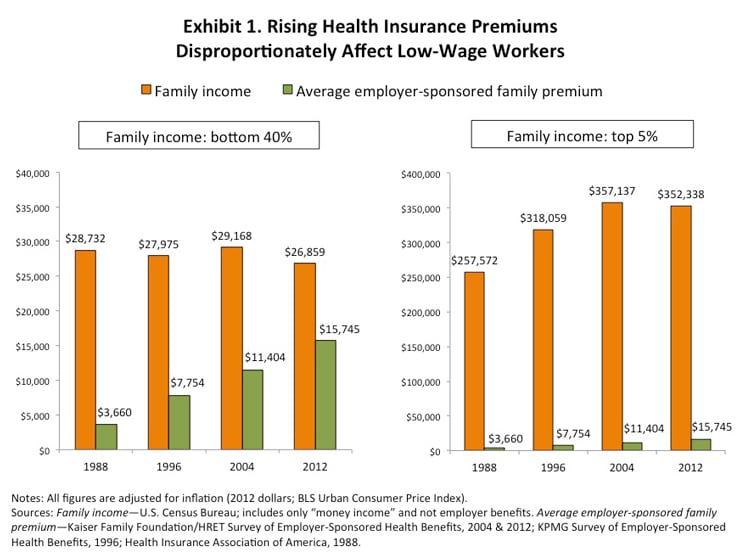Since signing the Affordable Care Act into law in 2010, speculation and horror stories have run rampant throughout American media and dinner table conversations alike, fearful of its implementation in the coming years. But now that the controversial changes are beginning to take effect, many are still scratching their heads about the actual impact Obamacare will have on their pocketbooks.
For the majority of the country, very little changed at the onset of 2014. Many employers that provided health insurance continued to do so at the same rate, while undocumented workers continue to exist without an insurance safety net.
Slowing the snowball effect of annual insurance costs, the ACA is expected to actually lower premiums by nearly $2,000 per family.
The AMA’s initial cost to individuals is leaving many previously uninsured citizens grumbling, resentful to be giving insurance companies a dime of their hard-earned pay. But with more Americans covering their own healthcare costs, as made accessible by the ACA’s lower premiums, the burden on taxpayers to cover emergency room visits by those without insurance should drop dramatically, relieving the strain on the collective taxpaying community.
Cost-control won’t just be seen in insurance premiums, however. The ACA seeks to eliminate unnecessary costs to the system by honing in on fraud and abuse in the Medicare and Medicaid programs, reducing unnecessary paperwork and creating uniform operating standards, improving access to cheaper generic medications, increasing competition between insurance companies, and more.
These reductions in insurance premiums, attention to medical bankruptcy prevention, federal deficit reduction, and individual tax reduction rolled out over the next decade are expected to save taxpayers and the federal government billions of dollars.
U.S. employees are certainly entering into a new era of health reform, and this is only the beginning. The hope is that with increased numbers of Americans signing up for more accessible healthcare, and with hospitals and insurance companies now competing for patients, we will see a gradual decade-long overhaul of an outdated and corrupt system. The ACA recognizes that this kind of change is not an overnight solution, but an evolutionary process requiring constant adjustment, input, and oversight.
One of the most important measures establishes an independent panel of medical experts tasked with devising changes to Medicare’s payment system, keeping costs below a reasonable threshold. The well-being of individuals is beginning to shift from a corporate-controlled business model to one that gives healthcare professionals and their patients more power to work together without costs dictating quality care.
As many have noted, the United States is one of the only first-world nations whose citizens do not have access to affordable, comprehensive health care. The Affordable Care Act is far from perfect, but we are beginning to lay a foundation that may one day unburden thousands from the struggle to merely exist, and to perhaps thrive despite all odds.
These first steps, these initial payments and costs to Americans in 2014, will allow us to collectively begin to shift the trajectory of our nation’s health policies, and to curb the decades-long rise in unnecessary spending. If all goes accordingly, the media-frenzy of horror stories will soon dissipate, and future generations will thank us for our initial investment in our nation’s health.
